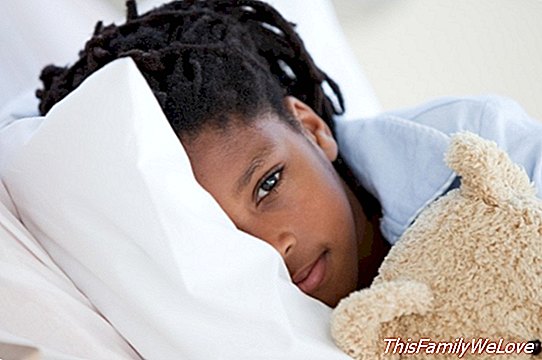Infantile anxiety


Anxiety is a basic emotion that we experience in the face of stress, but how does it come to be unleashed in children? In childhood we are exposed to several situations that can generate stress: pressure at school, high expectations of parents or when the family is not having a good time are situations that can trigger anxiety in children.
Infantile anxiety usually appears as a response to a danger or threat. We all feel anxiety In our lives, and in a healthy way, it is what helps us to cope with problems and cope with them.
As children grow up, there are times when they feel fear or perceive danger: to darkness, to monsters, to falling, to an examination ... Over time most children learn that monsters do not exist, that the exams are approved studying and that if they fall the important thing is to get up. When fears are not overcome naturally, a child anxiety picture can be generated.
Types of anxiety in children
- Separation anxiety disorder. If the child is too distressed by a daily separation from their parents, such as going to work, may be suffering from this disorder.
- Social phobia. As they grow up, children interact socially with other children, and also with adults. However, some children find this interaction more difficult and feel anxious about the proximity of strangers. They usually present this fear having difficulties when speaking aloud in class, when joining a conversation, making friends or participating in school activities.
- Generalized anxiety disorder. Children with this disorder worry about all things, from school performance, the health of their parents and everything that happens in the world. They can not stop worrying and tend to have symptoms such as irritability, sleep disturbances, discomfort or muscle pain caused by worry.
How parents can help the child with anxiety
- Talk to the child about everything that worries him, about how he feels. Do not avoid escaping the situations that anguish him, this will only help prolong his anxiety.
- Acts as a model of behavior. The children imitate the behaviors and emotions expressed by their parents. It is important that you control and manage your own reactions to avoid that your child shows anxiety. It is important that with this process of imitation the child learns to show his feelings, to face the problems and not to avoid them.
- Help to be exposed to situations that create anxiety, Gradually, we can first accompany him, then only, until the situation becomes easier and his fears disappear.
Noelia de Santiago Monteserín




